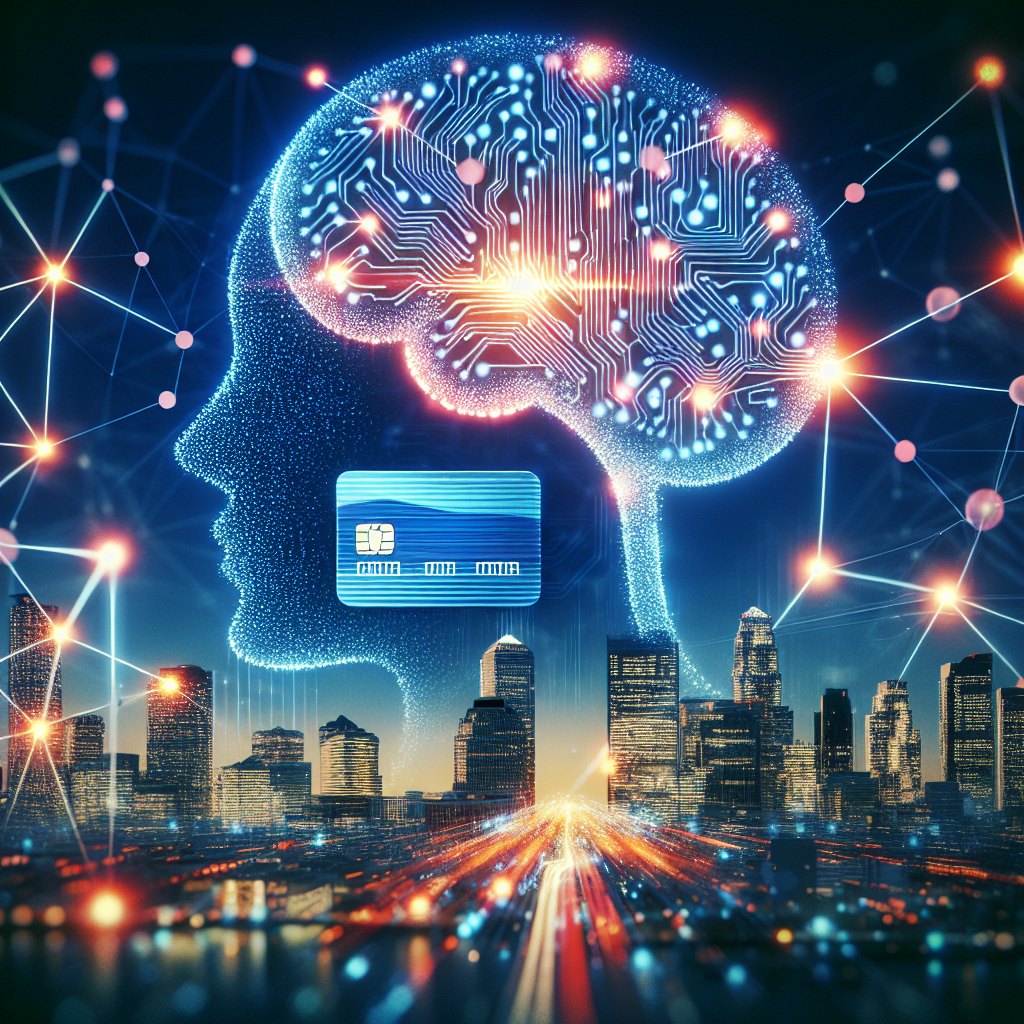In today’s digital age, the use of artificial intelligence (AI) in various industries is becoming increasingly prevalent. One area where AI is making a significant impact is in banking, specifically in the realm of credit scoring models. Credit scoring models are used by banks and financial institutions to assess the creditworthiness of individuals and determine their likelihood of defaulting on a loan. By leveraging AI technologies, these models can be enhanced to provide more accurate and reliable assessments, ultimately benefiting both lenders and borrowers.
AI-powered credit scoring models utilize machine learning algorithms to analyze vast amounts of data and identify patterns that traditional scoring models may overlook. This allows banks to make more informed decisions when assessing credit risk, leading to improved loan approval rates and reduced defaults. In addition, AI can also help streamline the credit evaluation process, making it faster and more efficient for both lenders and borrowers.
One of the key benefits of using AI in credit scoring is its ability to consider a wider range of factors when assessing creditworthiness. Traditional scoring models typically rely on a limited set of variables, such as credit history and income level, to make lending decisions. AI, on the other hand, can analyze a broader array of data points, including social media activity, online shopping behavior, and even smartphone usage patterns. By incorporating these additional factors, AI-powered credit scoring models can provide a more holistic view of an individual’s financial health, leading to more accurate risk assessments.
Another advantage of AI in credit scoring is its ability to adapt and learn from new data in real-time. Traditional scoring models are often static and rely on fixed rules to make lending decisions. AI, on the other hand, can continuously learn from new information and adjust its algorithms accordingly. This means that AI-powered credit scoring models can quickly adapt to changing market conditions and identify emerging trends that may impact credit risk. By leveraging AI’s adaptive capabilities, banks can make more informed and proactive lending decisions, ultimately reducing their exposure to risky borrowers.
In addition to improving credit risk assessment, AI can also help banks enhance their customer experience. By automating the credit evaluation process, AI-powered models can provide faster loan approvals and personalized loan offers to borrowers. This not only improves customer satisfaction but also helps banks attract and retain customers in an increasingly competitive market. Furthermore, AI can also help banks identify potential fraudsters and prevent fraudulent loan applications, ultimately safeguarding their bottom line.
Despite the numerous benefits of using AI in credit scoring, there are also some challenges and considerations that banks need to be aware of. One potential concern is the lack of transparency in AI algorithms, which can make it difficult to understand how decisions are being made. Banks must ensure that their AI-powered credit scoring models are transparent and explainable to both regulators and customers to maintain trust and compliance with industry standards.
Additionally, banks must also consider the ethical implications of using AI in credit scoring. There is a risk that AI algorithms may inadvertently perpetuate bias and discrimination, especially if they are trained on biased data sets. Banks must take steps to mitigate bias in their AI models and ensure that they are fair and unbiased in their lending decisions.
Overall, the use of AI in credit scoring has the potential to revolutionize the banking industry by providing more accurate, efficient, and customer-centric lending solutions. By leveraging AI technologies, banks can enhance their credit scoring models, improve risk assessment, and streamline the lending process. While there are challenges and considerations to be mindful of, the benefits of AI in credit scoring far outweigh the risks, making it a valuable tool for banks looking to stay competitive in today’s digital economy.
FAQs:
Q: How does AI improve credit scoring models in banking?
A: AI improves credit scoring models by analyzing a wider range of data points, adapting to new information in real-time, and providing faster loan approvals and personalized offers to borrowers.
Q: What are the benefits of using AI in credit scoring?
A: The benefits of using AI in credit scoring include more accurate risk assessments, improved loan approval rates, reduced defaults, faster loan approvals, and enhanced customer experience.
Q: What are some challenges of using AI in credit scoring?
A: Some challenges of using AI in credit scoring include the lack of transparency in AI algorithms, the risk of perpetuating bias and discrimination, and ethical implications related to fair lending practices.
Q: How can banks mitigate bias in AI-powered credit scoring models?
A: Banks can mitigate bias in AI-powered credit scoring models by ensuring that their algorithms are transparent, explainable, and trained on unbiased data sets. They can also implement ethical guidelines and compliance measures to ensure fair lending practices.

